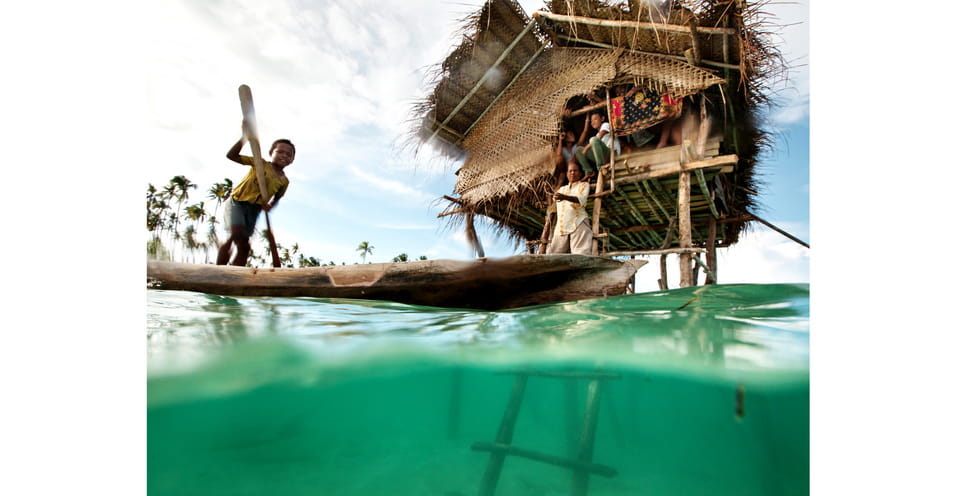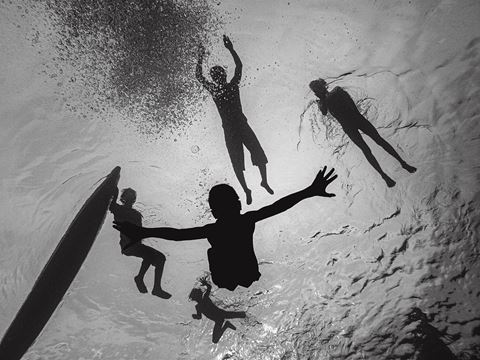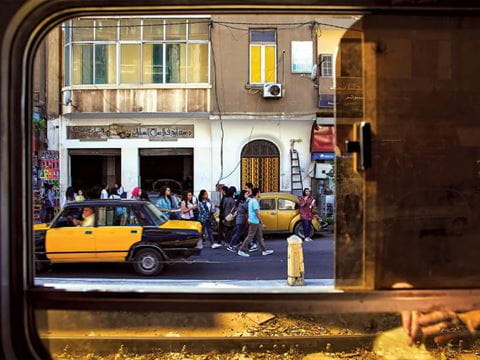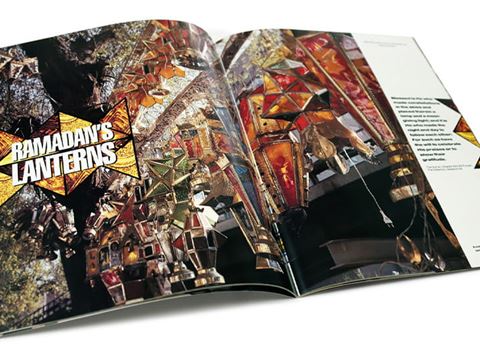
FirstLook: “Children can swim before they walk"
Photographer Matthieu Paley was in Southeast Asia working on stories about the evolution of the human diet when he made this picture. "I was visiting traditional, self-sufficient communities to see how food shapes daily life. My host was named Marita. She was inside preparing food as I arrived."
That’s a Bajau saying I learned three years ago while I was in Southeast Asia working on stories about the evolution of the human diet. I was visiting traditional, self-sufficient communities to see how food shapes daily life. Here I was arriving for lunch at this family’s home off the coast of Pulau Bodgaya (Bodgaya Island), in the Celebes Sea of northeast Sarawak, Malaysia. My host was named Marita. She was inside preparing food as I arrived.
The family is Bajau, one of several names used by roughly a million people living scattered along the coasts and archipelagos in Malaysia, Singapore, Indonesia and the Philippines. Bajau are often called “sea gypsies” for their frequently nomadic, subsistence ways, and to this day some do not hold a national citizenship.
The Bajau get most of their food directly from the ocean. They eat everything from many kinds of fish to sea urchins and octopi, all of which they catch mostly by spearfishing or gathering at low tide. Underwater, Bajau are famous for being able to hold a breath for several minutes.
It was not easy to get from shore to the house: I could swim or take a dugout canoe. I chose the canoe. With no language in common, I used my curiosity about food as a kind of universal way to communicate. On assignment or in my own daily life, I often bond with and become closer to people around food. It connects all of us.
We ate a simple meal of small fish fry with some ground cassava, which Marita prepared in a curved, wok-like pan over an open fire. The breeze cleared smoke through the bamboo lattice, and the six of us ate with our hands as the water lapped underneath the house.
—Matthieu Paley www.paleyphoto.com
The family is Bajau, one of several names used by roughly a million people living scattered along the coasts and archipelagos in Malaysia, Singapore, Indonesia and the Philippines. Bajau are often called “sea gypsies” for their frequently nomadic, subsistence ways, and to this day some do not hold a national citizenship.
The Bajau get most of their food directly from the ocean. They eat everything from many kinds of fish to sea urchins and octopi, all of which they catch mostly by spearfishing or gathering at low tide. Underwater, Bajau are famous for being able to hold a breath for several minutes.
It was not easy to get from shore to the house: I could swim or take a dugout canoe. I chose the canoe. With no language in common, I used my curiosity about food as a kind of universal way to communicate. On assignment or in my own daily life, I often bond with and become closer to people around food. It connects all of us.
We ate a simple meal of small fish fry with some ground cassava, which Marita prepared in a curved, wok-like pan over an open fire. The breeze cleared smoke through the bamboo lattice, and the six of us ate with our hands as the water lapped underneath the house.
—Matthieu Paley www.paleyphoto.com
You may also be interested in...

Ambon Island, East Indonesia by Hengki Koentjoro
Arts
This photo was taken off Ambon Island, East Indonesia in 2010. It is one of my favorites, illustrating the free-spirited nature of the children in the rural archipelago. While some children in the big cities may stay inside and play computer games, the children in Ambon with easy access to the water see the ocean surrounding their village as their playground.
How to Discover Egypt From the Inside Out
Arts
Rather than just telling travelers where to go, the guidebook Egypt: Inside Out by Trevor Naylor offers an inside-out perspective that evokes the experience of being there, inviting readers to embrace an almost meditative travel discipline of slowing down to take in the details and complexities of Egypt, moment by moment.
Find Ramadan Lanterns on Cairo's Streets with John Feeney
Arts
In the March/April 1992 issue, writer and photographer John Feeney took AramcoWorld readers on a walk through the streets of Cairo during Ramadan.